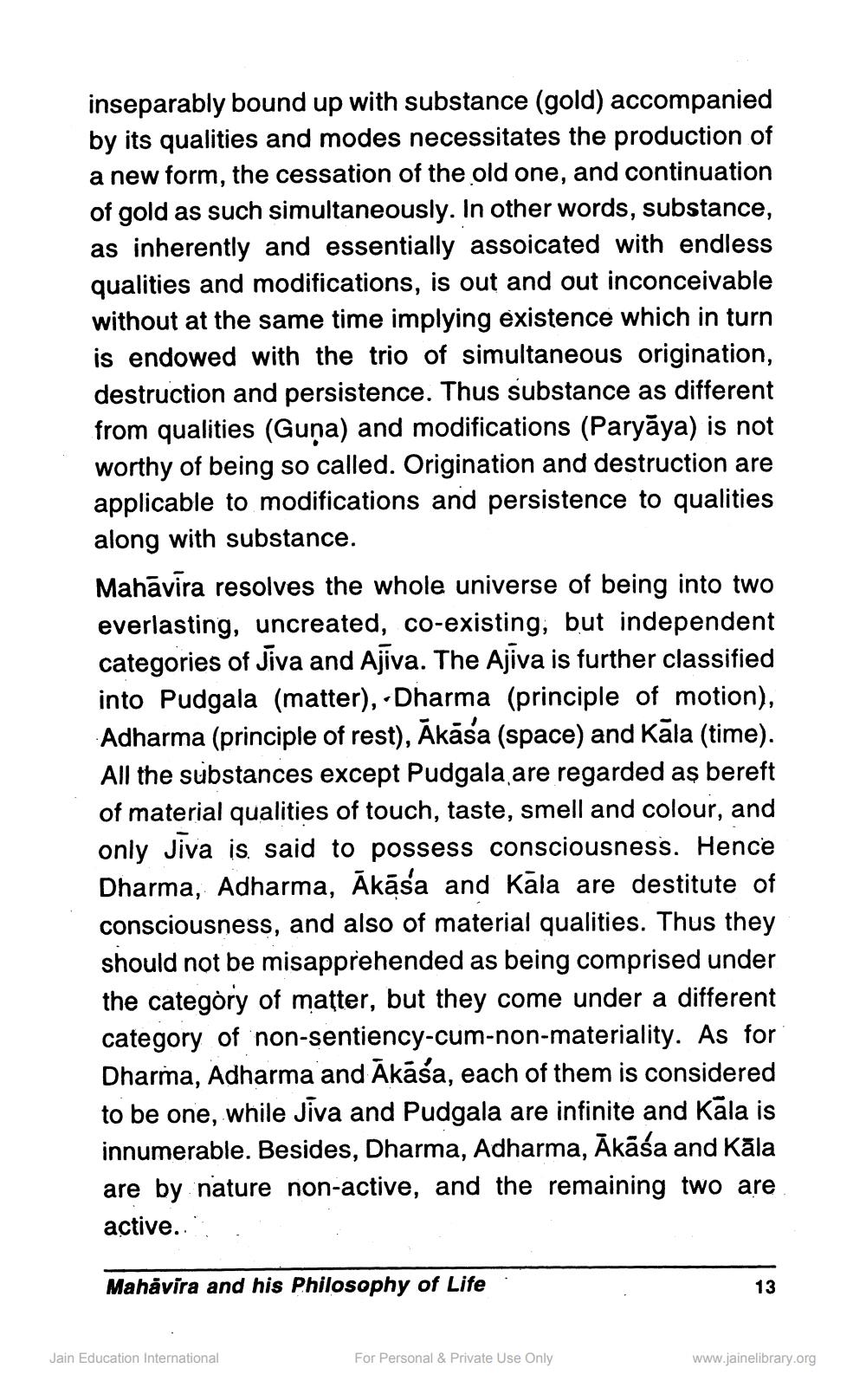________________
inseparably bound up with substance (gold) accompanied by its qualities and modes necessitates the production of a new form, the cessation of the old one, and continuation of gold as such simultaneously. In other words, substance, as inherently and essentially assoicated with endless qualities and modifications, is out and out inconceivable without at the same time implying existence which in turn is endowed with the trio of simultaneous origination, destruction and persistence. Thus substance as different from qualities (Guna) and modifications (Paryāya) is not worthy of being so called. Origination and destruction are applicable to modifications and persistence to qualities along with substance. Mahāvira resolves the whole universe of being into two everlasting, uncreated, co-existing, but independent categories of Jiva and Ajiva. The Ajiva is further classified into Pudgala (matter), Dharma (principle of motion), Adharma (principle of rest), Akasa (space) and Kala (time). All the substances except Pudgala are regarded as bereft of material qualities of touch, taste, smell and colour, and only Jiva is said to possess consciousness. Hence Dharma, Adharma, Akasa and Kāla are destitute of consciousness, and also of material qualities. Thus they should not be misapprehended as being comprised under the category of matter, but they come under a different category of non-sentiency-cum-non-materiality. As for Dharma, Adharma and Ākāśa, each of them is considered to be one, while Jiva and Pudgala are infinite and Kāla is innumerable. Besides, Dharma, Adharma, Ākāśa and Kāla are by nature non-active, and the remaining two are active.
Mahavira and his Philosophy of Life
13
Jain Education International
For Personal & Private Use Only
www.jainelibrary.org




